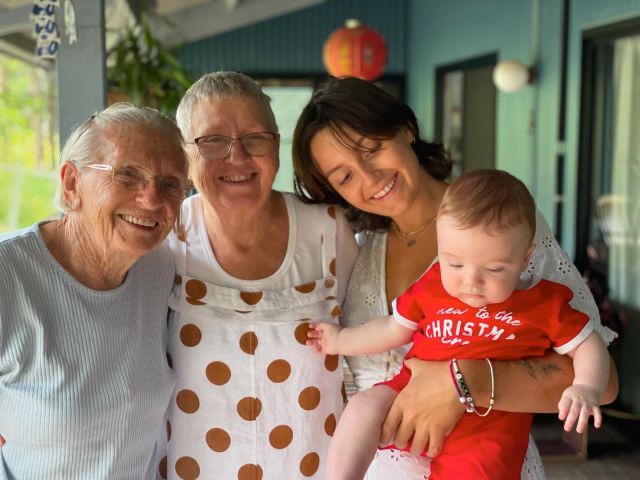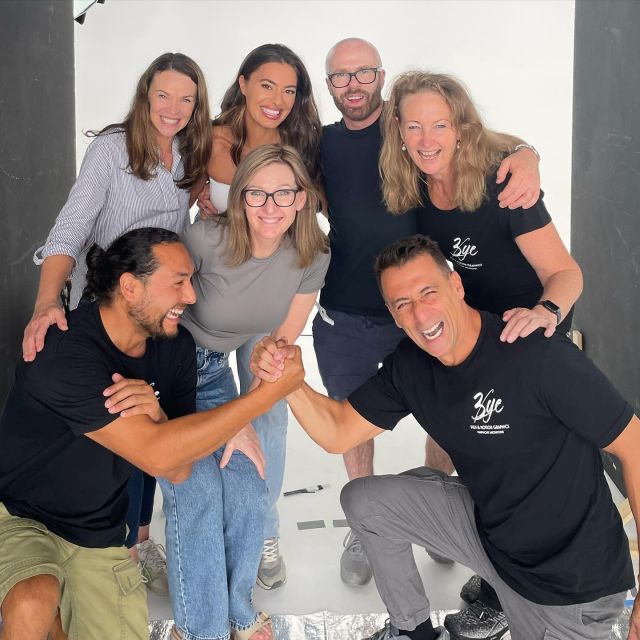In recent years, Australia has been engaging in a national conversation about constitutional recognition for Indigenous Australians. One proposal that has gained significant attention is the creation of an Indigenous voice to parliament. This proposal seeks to create a formal mechanism for Indigenous Australians to have a say in the decisions that affect their lives and to ensure that their perspectives are taken into account by those in power.
The question:
A Proposed Law: to alter the Constitution to recognise the First Peoples of Australia by establishing an Aboriginal and Torres Strait Islander Voice.
Do you approve this proposed alteration?
The proposed alteration to the constitution:
Chapter IX Recognition of Aboriginal and Torres Strait Islander Peoples 129 Aboriginal and Torres Strait Islander Voice
In recognition of Aboriginal and Torres Strait Islander peoples as the First Peoples of Australia:
1: There shall be a body, to be called the Aboriginal and Torres Strait Islander Voice;
2: The Aboriginal and Torres Strait Islander Voice may make representations to the Parliament and the Executive Government of the Commonwealth on matters relating to Aboriginal and Torres Strait Islander peoples;
3: The Parliament shall, subject to this Constitution, have power to make laws with respect to matters relating to the Aboriginal and Torres Strait Islander Voice, including its composition, functions, powers and procedures.
The idea of an Indigenous voice to parliament has been around for some time, but it gained momentum in 2017, when the Uluru Statement from the Heart was released. This statement was the result of a series of consultations with Indigenous Australians, and it called for a number of reforms, including the establishment of a First Nations Voice to parliament enshrined in the constitution.
The proposed Indigenous voice to parliament would take the form of a representative body, composed of Indigenous Australians from across the country. This body would have the power to provide advice and input on policy issues that affect Indigenous people, and it would have a role in scrutinising government decisions that impact Indigenous communities. Importantly, the body would not have the power to make laws or veto decisions, but it would provide a mechanism for Indigenous Australians to have their voices heard in the political process.
The proposal has received widespread support from Indigenous groups, as well as some non-Indigenous politicians and organizations. Supporters argue that the Indigenous voice to parliament would help to address the historical exclusion of Indigenous Australians from the political process, and would ensure that their views and experiences are taken into account in policy-making.
Opposition To The Voice
However, the proposal has also faced significant opposition from some quarters. Critics argue that the Indigenous voice to parliament would create a separate and unequal system of governance and that it would be divisive and unnecessary. Some also argue that the proposal would be difficult to implement in practice and that it would be challenging to ensure that the representative body truly reflects the diverse views and experiences of Indigenous Australians.
Addressing the Marginalisation of Indigenous Australians
Despite the controversy surrounding the proposal, there is a growing sense that Australia needs to do more to address the historical and ongoing marginalisation of Indigenous Australians. The Indigenous voice to parliament represents one possible solution to this problem, and it has the potential to create a more inclusive and representative political system. However, there is still much work to be done to ensure that the proposal is implemented in a way that is effective and sustainable and that it truly reflects the needs and aspirations of Indigenous Australians.
The proposed Indigenous voice to parliament is a significant and potentially transformative proposal for Australia. It represents an opportunity to address the historical exclusion of Indigenous Australians from the political process, and to create a more inclusive and representative system of governance.
The Argument for The Voice to Parliament
The proposal for an Indigenous voice to parliament in Australia has been supported by a wide range of Indigenous groups, community leaders, and politicians from various parties. There are several arguments in favour of the proposal, which are outlined below:
Addressing the historical and ongoing marginalisation of Indigenous Australians:
The establishment of an Indigenous voice to parliament would provide a mechanism for Indigenous Australians to have their voices heard in the political process. This would help to address the historical exclusion of Indigenous Australians from the political process and ensure that their views and experiences are taken into account in policy-making.
Improved policy outcomes:
By providing advice and input on policy issues that affect Indigenous people, the Indigenous voice to parliament could help to ensure that policies are better designed to meet the needs and aspirations of Indigenous Australians. This would improve the overall quality of policy outcomes and help to address the significant disparities between Indigenous and non-Indigenous Australians in areas such as health, education, and employment.
Symbolic recognition:
The establishment of an Indigenous voice to parliament would be a significant symbolic gesture, demonstrating that the Australian government is committed to addressing the historical and ongoing marginalization of Indigenous Australians. This would help to build trust and relationships between Indigenous and non-Indigenous Australians and contribute to reconciliation efforts.
Some of the main people and groups in favour of the Indigenous voice to parliament include:
Indigenous groups:
A number of Indigenous groups have been vocal in their support for the Indigenous voice to parliament, including the National Congress of Australia’s First Peoples, the First Nations Summit in Western Australia, and the Northern Territory’s Barunga Statement.
Politicians:
The proposal for an Indigenous voice to parliament has been supported by politicians from across the political spectrum. Labor, led by Anthony Albanese, the Greens, and some members of the Liberal Party have all expressed support for the proposal.
Community leaders:
A range of community leaders has spoken out in favour of the Indigenous voice to parliament, including Indigenous academic Marcia Langton and former Australian of the Year Mick Dodson.
Indigenous groups, politicians, and community leaders believe that it represents a significant step towards addressing the historical and ongoing marginalization of Indigenous Australians.
Who Is Opposed to the Voice To Parliament?
Some of the main people and groups opposed to the Indigenous voice to parliament include:
Conservative politicians:
Some politicians from the Liberal and National parties, led by Peter Dutton, have expressed opposition to the proposal, arguing that it would create a separate and unequal system of governance.
Think tanks and interest groups:
Some think tanks and interest groups, such as the Institute of Public Affairs, have also opposed the proposal, arguing that it would be divisive and unnecessary.
Media commentators:
Some media commentators have expressed opposition to the proposal, arguing that it would be difficult to implement in practice and that it would not necessarily lead to better political representation for Indigenous Australians.
Some of the most vocal opponents include:
- Andrew Bolt: Andrew Bolt is a conservative commentator who has been a vocal opponent of the Indigenous voice to parliament. He has argued that the proposal would create a separate and unequal system of governance and that it is unnecessary.
- Miranda Devine: Miranda Devine, a conservative columnist, has expressed opposition to the proposal. She has argued that the proposal is divisive and that it would not necessarily lead to better political representation for Indigenous Australians.
- Peta Credlin: Peta Credlin is the former policy adviser to the Howard government, and former chief of staff to Tony Abbott while in opposition and a conservative commentator. She has argued that the proposal would create a separate and unequal system of governance and that it is unnecessary.
Why Australia Needs The Indigenous Voice to Parliament
Australia needs the Indigenous voice to parliament because it represents a significant step towards addressing the historical and ongoing marginalisation of Indigenous Australians. Despite some progress in recent decades, Indigenous Australians continue to experience significant disparities in health, education, employment, and other areas when compared to non-Indigenous Australians.
One of the key reasons why the Indigenous voice to parliament is necessary is that it would provide a mechanism for Indigenous Australians to have their voices heard in the political process. Indigenous Australians have long been excluded from the political process, and the establishment of an Indigenous voice to parliament would help to address this historical exclusion. This would ensure that Indigenous Australians have a say in the policies and decisions that affect their lives and communities.
Additionally, the Indigenous voice to parliament would help to ensure that policies and programs are better designed to meet the needs and aspirations of Indigenous Australians. By providing advice and input on policy issues that affect Indigenous people, the Indigenous voice to parliament could help to ensure that policies are better informed and more effective. This would ultimately lead to improved outcomes for Indigenous Australians and contribute to closing the gap between Indigenous and non-Indigenous Australians.
Finally, the Indigenous voice to parliament would be a significant symbolic gesture, demonstrating that the Australian government is committed to addressing the historical and ongoing marginalisation of Indigenous Australians. This would help to build trust and relationships between Indigenous and non-Indigenous Australians and contribute to reconciliation efforts.
Overall, the Indigenous voice to parliament is necessary to address the significant disparities between Indigenous and non-Indigenous Australians and ensure that Indigenous Australians have a say in the policies and decisions that affect their lives and communities.

















